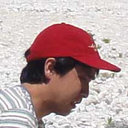PTEN reduces cuff-induced neointima formation and proinflammatory cytokines.
Ključne besede
Povzetek
An inflammatory response followed by vascular injury plays an important role in neointima formation and development of atherosclerotic lesions, which are in part mediated by proinflammatory cytokines. Using a cuff injury model, we examined the effects of adenovirus-mediated overexpression of phosphatase and tensin homology deleted on chromosome 10 (PTEN) on neointima formation and the proinflammatory response. A cuff was placed around the femoral artery, and adenovirus expressing human PTEN type 1 (AdPTEN) or Escherichia coli beta-galactosidase (AdLacZ) was injected between the cuff and the adventitia. After 14 days, the arteries were examined histopathologically and by Western blotting. The significant reduction of neointima formation by AdPTEN compared with AdLacZ was accompanied by reduced cell proliferation and increased adventitial cell apoptosis. AdPTEN also reduced expression of phosphorylated I kappa B-alpha, but not nonphosphorylated I kappa B-alpha. Western blotting revealed that AdPTEN reduced the cuff injury-induced expression levels of monocyte chemoattractant protein-1, TNF-alpha, and IL-1 beta and their expression in all layers of the arterial wall. In contrast, cuff-induced macrophage invasion, which was also inhibited by AdPTEN, was detected only at the intimal surface and in the adventitia. In cultured vascular smooth muscle cells, PTEN directly inhibited ANG II-induced monocyte chemoattractant protein-1 expression as quantified by real-time PCR and Western blotting. Our results suggest that overexpression of PTEN reduces neointima formation, possibly in part through inhibition of the inflammatory response by macrophage invasion and proinflammatory cytokine expression.



